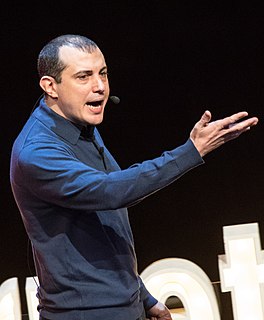A Quote by Olaf Carlson-Wee
Application-specific tokens, or app-tokens, are built on top of existing general-purpose blockchains like Bitcoin and Ethereum. For the first time, open-source project creators can directly monetize their open-source network.
Related Quotes
If an open source product gets good enough, we'll simply take it. So the great thing about open source is nobody owns it - a company like Oracle is free to take it for nothing, include it in our products and charge for support, and that's what we'll do. So it is not disruptive at all - you have to find places to add value. Once open source gets good enough, competing with it would be insane. We don't have to fight open source, we have to exploit open source.
If the DHS insists, as bureaucracies are apt to do, that open-source must be certified via a sanctioned, formal process, it will interfere with the informal process of open-source itself. It seems to me the DHS is trying to turn an open-source development project into a Microsoft (or IBM or Oracle) software development project. And we know what that means: more, not fewer, errors -- security and otherwise.
In a world with many blockchains and hundreds of tradable tokens built on top of them, entire industries are automated through software, venture capital and stock markets are circumvented, entrepreneurship is streamlined, and networks gain sovereignty through their own digital currency. This is the next phase of the Internet.
Every little thing has a purpose, at the same time, it has no purpose because this whole thing is a game. It is the existence which is total, beyond purpose. So you can say, virtually there is no purpose. If at all you have to pin down to a purpose then the purpose of nature is to take you to the Source, is to remind you of the Source, connect you to your Source.
The Open Source theorem says that if you give away source code, innovation will occur. Certainly, Unix was done this way... However, the corollary states that the innovation will occur elsewhere. No matter how many people you hire. So the only way to get close to the state of the art is to give the people who are going to be doing the innovative things the means to do it. That's why we had built-in source code with Unix. Open source is tapping the energy that's out there.





























